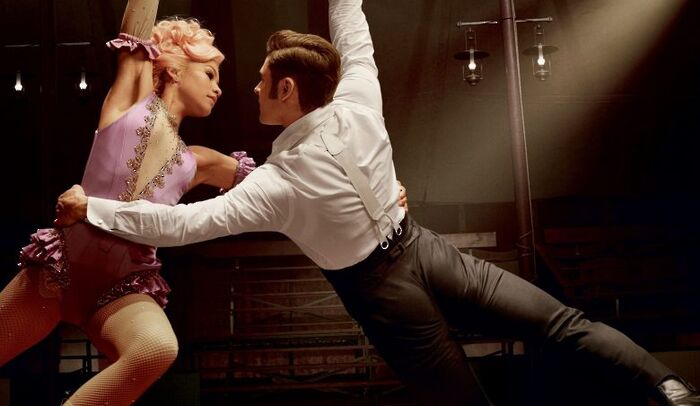The Disaster Artist review: ‘laughing all the way to the bank’
A film with great personal resonance for Adrianna Hunt, this comedy-biopic captures the spirit of a cult quite undisastrously

I first encountered Tommy Wiseau’s The Room as a fourteen-year-old at a sleepover – a viewing experience soundtracked by fits of laughter, derisive snorts, and questionable nineties R’n’B. My friends and I went into school on Monday communicating only in Wiseauesque non sequiturs, receiving perplexed looks from our peers as we created a crescendo of ‘cheeps’ in the middle of the cafeteria. (We were certainly not the dinner ladies’ favourite customers after that.) From that day, my fixation with The Room only grew, and it is with shame that I must admit that I have opted to forgo consuming more critically-lauded films in favour of Wiseau’s cinematic enigma.
The question arises: why is the oft-proclaimed “greatest bad movie ever made” so intensely watchable?
“The film can also precipitate a crisis of conscience”
Greg Sestero’s 2013 memoir, The Disaster Artist, provided the answers and the context that had been notably absent from Wiseau’s $6 million Gordian knot. Sestero’s chronicle recounts his experiences as a nineteen-year old struggling actor who found a kindred spirit in the presumably much older Wiseau, as they tackle the superficialities and trials of Hollywood together. Their exploits culminated in the inexplicably wealthy Wiseau proposing that they make their own film: The Room.
Celebrity fans of the film were instrumental in cementing the cult status of both The Room and Sestero’s memoir, and so it seems only fitting that Seth Rogen’s production company obtained the book and film rights for the latter. James Franco serves at the directorial helm of The Disaster Artist, as well as impeccably taking on the starring role of Wiseau. Franco dominates the screen, in what may top 127 Hours as a career best, with a Golden Globe nomination already secured.

Despite this, the emphasis placed upon the characterisation of Wiseau can at times come at the detriment of other characters. The beauty of Sestero’s memoir is that it not only provides context to The Room, but also candidly encapsulates the difficulties faced by naïve Hollywood hopefuls auditioning ceaselessly for trivial roles to build their portfolios. The decision to make Wiseau the main attraction somewhat limits the extent to which the audience feels this struggle; it also limits Dave Franco’s portrayal of Sestero.
An element of Sestero’s memoir that the film perfectly depicts is the hilarious process of making the The Room. A particularly amusing scene arises when Wiseau continuously flubs the now infamous lines on the ‘Rooftop’, a water bottle eventually serving as the panacea to Wiseau’s ineptitude, much to the relief of the exasperated crew. Another surprising gem comes in the form of the initially unrecognisable Zac Efron in the role of the overzealous drug dealer, Chris R.
The more sinister elements of working with a man as paranoid as Wiseau are also handled carefully. During the filming of a sex scene, Wiseau critiques the body of Lisa-actress, Juliet Danielle (portrayed here by Ari Gaynor), humiliating her in front of the entire crew. This makes for extremely uncomfortable viewing, reminding the audience that Wiseau is not merely a harmless clown, but a physical embodiment of the dark side of Hollywood in its policing of women’s bodies.
As an audience member, the film can also precipitate a crisis of conscience, particularly when one sees the reception of The Room at its premiere, and the mocking laughter it is met with. It brings a poignant focus on Wiseau’s emotional response to this derision, questioning the morality of laughing at what is ultimately someone’s dream. Yet, we get the sense that Wiseau is the one laughing all the way to the bank: midnight screenings of The Room continue to sell out, he has appeared alongside James Franco on various talk shows, and his hopes of attending the Oscars are perhaps no longer a pipe dream.
Ultimately, this metafilm is a remarkably clever comedy, as Franco’s direction does not take the simple route of parodying Wiseau. Instead we are shown that out of a supposed ‘disaster’, a community has formed, bonded by laughter and a film more memorable than many of those which adhere to all of Hollywood’s hackneyed rules
 News / Clare Hall spent over £500k opposing busway 24 December 2025
News / Clare Hall spent over £500k opposing busway 24 December 2025 Comment / The ‘class’ of Cambridge24 December 2025
Comment / The ‘class’ of Cambridge24 December 2025 News / Caius mourns its tree-mendous loss23 December 2025
News / Caius mourns its tree-mendous loss23 December 2025 News / Girton JCR publishes open letter expressing solidarity with Palestine25 December 2025
News / Girton JCR publishes open letter expressing solidarity with Palestine25 December 2025 Comment / Yes, I’m brown – but I have more important things to say22 December 2025
Comment / Yes, I’m brown – but I have more important things to say22 December 2025










